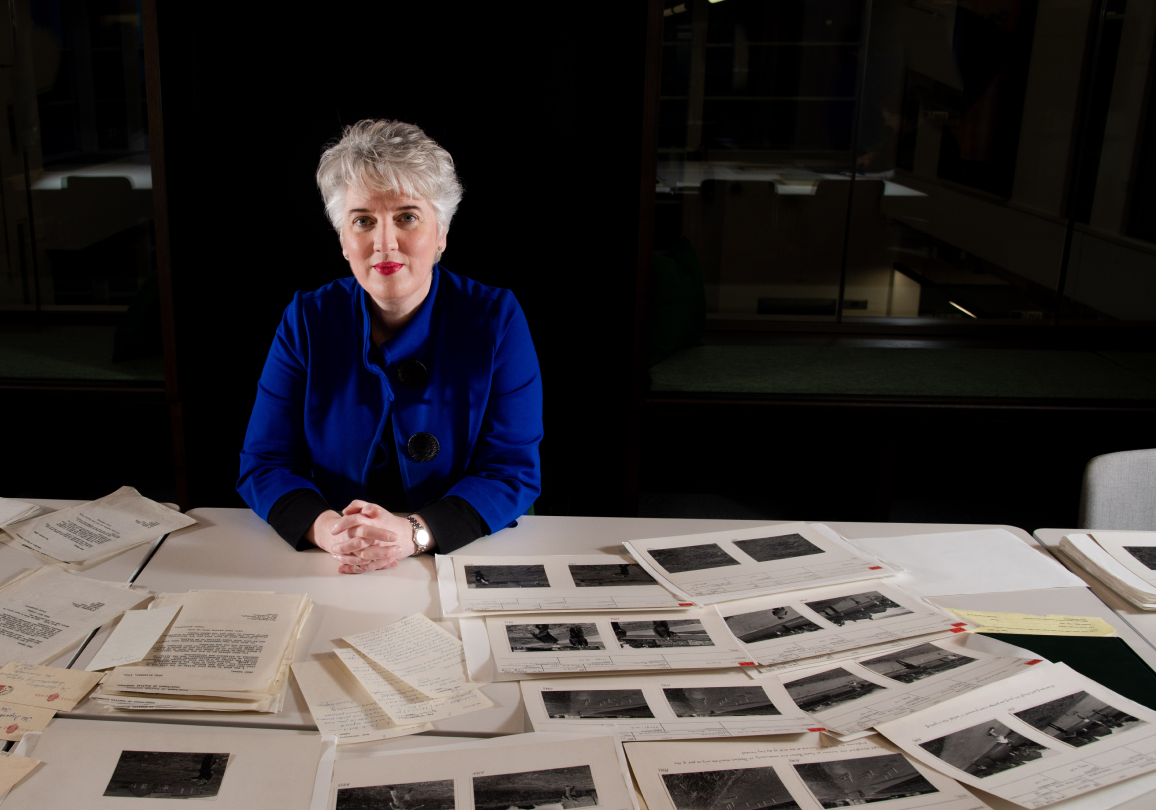The language of life

Almost 75 years ago, Leeds began detailing the vast variety of dialect words and phrases used across England. Now your donations are helping us to share, celebrate – and expand – this unique archive.
We’re just the custodians of all this. It belongs in the community.” Dr Fiona Douglas is sifting through the remarkable photographs, notebooks and tape recordings collected during decades of Leeds research exploring regional dialects across England.
During the 1950s, a small army of researchers from the Survey of English Dialects visited villages around the country to chronicle the different words, phrases, accents and traditions of local communities. Armed with notebooks and tape recorders, they explored lives, customs and language.
“They focussed on older people who hadn’t moved around much during their lives,” says Dr Douglas. “They had a list of 1,300 questions, and they visited 313 locations – so you can imagine how much data was collected. It’s perhaps a sign of the times, but men were asked about words used in their working lives, often in farming, while women were asked about cooking and the home.”
This groundbreaking survey of vernacular speech was one of the most extensive and detailed dialect studies ever undertaken. Between the 1960s and 1980s the work continued through the Institute of Dialect and Folk Life Studies, which also captured photographs and information relating to rural traditions and daily life. It gave the University a pre-eminence in a field of social history which reveals much about who we are, and how our lives are lived.
Maps produced by the researchers reveal the geography of language. While a midlander might have talked about freckles, someone from the North East might describe ferntickles; in Cornwall these might be muffles and in Somerset summervoys. Words for weather, food, trades, farming, domestic life and games varied widely across the country.
Now, with the support of donors and the National Lottery Heritage Fund, Fiona and her colleagues are putting this wealth of material back into the community, while gathering more material on the dialects of today. By putting on exhibitions and events in five independent folk museums – in Huttonle- Hole and Hawes in North Yorkshire, Bromsgrove in the Midlands, Stowmarket in Suffolk and Chichester in West Sussex – they are reigniting a love for old dialects, as well as working to preserve today’s local phrases.
We’re inviting people to come along and share with us, tell us what they remember from their childhood and help us collect present day dialect.
Jigsaws and card games, dominoes and word searches allow children to take part too. “It has to be fun. Families visit these museums together, and if the kids are bored, you’ve lost the opportunity to engage people and invite them to share their dialect.”
Donor support is allowing the project to expand into libraries and county shows, while a website enables everyone to get involved. Grants from the Footsteps Fund have enabled 30 students from a wide range of disciplines to develop their own research skills working on projects mining the archive’s rich seam of data and interviewing former Leeds staff and students.
The project has forged some remarkable connections to the past. “We’ve managed to track down a lot of the descendants of those who took part in the original surveys,” says Fiona. “People have learned things about their families that they just didn’t know. We’ve met people who are in their eighties now and played them some of the original audio recordings. It could be the first time they have heard their grandfather’s voice for half a century. There have been some tears.”
All this work is driven by Fiona’s conviction that the fruits of these decades of research belong back where they came from. “I’ve never just wanted to take people’s language, analyse it and then lock it away in a university. This material matters to people and to communities. It means much more out there than it ever can inside academia as a purely intellectual pursuit.”
When you support the University of Leeds, you play a vital role in supporting our University’s outstanding research and education.
If you would like to give to Leeds, please visit our giving page.